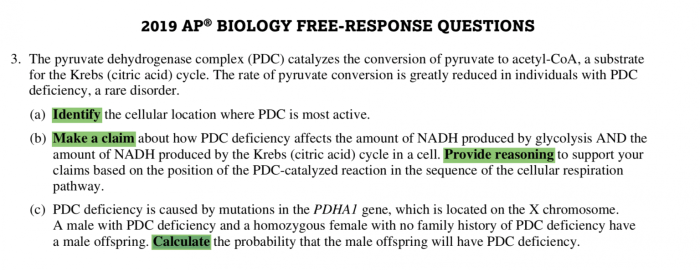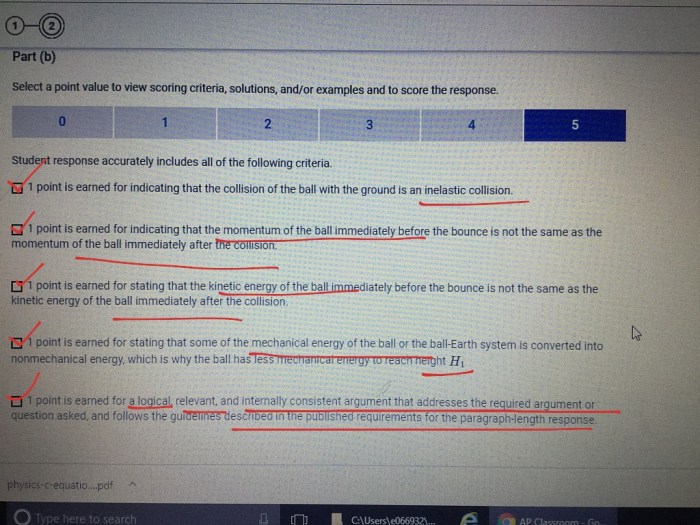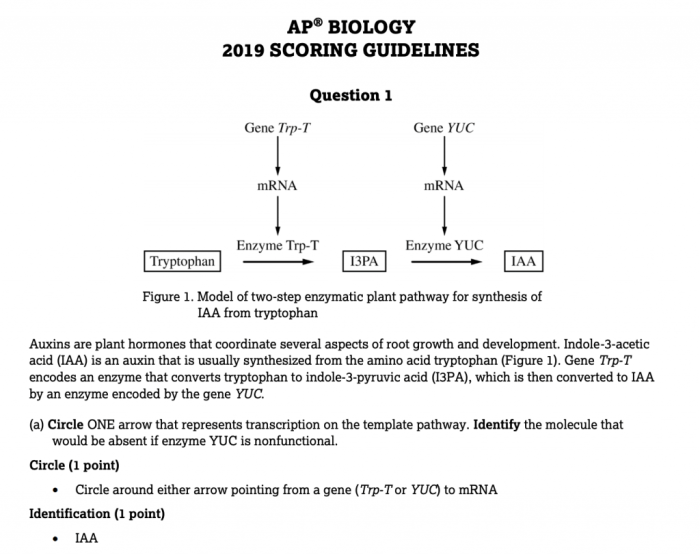Unit 5 progress check frq ap biology – The Unit 5 Progress Check FRQ is an essential assessment tool for AP Biology students. It provides a comprehensive evaluation of students’ understanding of the fundamental concepts covered in Unit 5, which encompasses cell structure and function, cell growth and division, genetics, evolution, ecology, and human biology.
This guide will provide an overview of the purpose and format of the FRQ, as well as detailed discussions of each topic covered in Unit 5. By thoroughly preparing for this assessment, students can demonstrate their mastery of the subject matter and enhance their overall performance in AP Biology.
Overview of Unit 5 Progress Check FRQ

The Unit 5 Progress Check Free Response Question (FRQ) is designed to assess students’ understanding of the key concepts and principles covered in Unit 5 of the AP Biology curriculum. The FRQ requires students to demonstrate their ability to apply their knowledge to novel scenarios and to communicate their understanding clearly and concisely in written form.
The FRQ covers a wide range of topics from Unit 5, including cell structure and function, cell growth and division, genetics, evolution, ecology, and human biology. Students are expected to be familiar with the following concepts:
- The structure and function of eukaryotic cells
- The process of cell growth and division
- The principles of Mendelian genetics
- The theory of evolution by natural selection
- The principles of ecology
- The structure and function of the human body systems
Cell Structure and Function

Eukaryotic cells are the basic unit of life and are characterized by their complex structure and organization. The cell membrane surrounds the cell and regulates the passage of materials into and out of the cell. The cytoplasm is the jelly-like substance that fills the cell and contains the cell’s organelles.
The nucleus is the control center of the cell and contains the cell’s DNA. Other organelles include the mitochondria, which produce energy for the cell; the endoplasmic reticulum, which synthesizes proteins; and the Golgi apparatus, which modifies and packages proteins.
The structure of a cell is closely related to its function. For example, the large surface area of the cell membrane allows for the efficient exchange of materials between the cell and its environment. The presence of mitochondria in cells that require a lot of energy, such as muscle cells, reflects the importance of energy production for cellular function.
Role of Cell Organelles in Cellular Processes, Unit 5 progress check frq ap biology
- Mitochondria: Produce energy through cellular respiration
- Endoplasmic reticulum: Synthesizes proteins and lipids
- Golgi apparatus: Modifies, sorts, and packages proteins and lipids
- Lysosomes: Contain digestive enzymes that break down waste materials
- Peroxisomes: Contain enzymes that detoxify harmful substances
Cell Growth and Division: Unit 5 Progress Check Frq Ap Biology

Cell growth and division are essential processes for the growth, development, and repair of organisms. Cell growth occurs when the cell takes in nutrients and uses them to synthesize new molecules. Cell division occurs when the cell divides into two new cells.
The cell cycle is the series of events that occur during cell growth and division.
The cell cycle consists of four phases: G1, S, G2, and M. During the G1 phase, the cell grows and prepares for DNA replication. During the S phase, the cell’s DNA is replicated. During the G2 phase, the cell checks for DNA damage and repairs any damage that is found.
During the M phase, the cell divides into two new cells.
Regulation of Cell Growth and Division
- Growth factors: Proteins that stimulate cell growth
- Cyclins: Proteins that regulate the progression of the cell cycle
- Checkpoint proteins: Proteins that check for DNA damage and repair any damage that is found
Popular Questions
What is the purpose of the Unit 5 Progress Check FRQ?
The Unit 5 Progress Check FRQ is designed to assess students’ understanding of the fundamental concepts covered in Unit 5 of AP Biology.
What topics are covered in the Unit 5 Progress Check FRQ?
The Unit 5 Progress Check FRQ covers cell structure and function, cell growth and division, genetics, evolution, ecology, and human biology.
How can I prepare for the Unit 5 Progress Check FRQ?
To prepare for the Unit 5 Progress Check FRQ, students should thoroughly review the material covered in Unit 5, practice answering FRQ-style questions, and seek guidance from their teacher or a tutor.